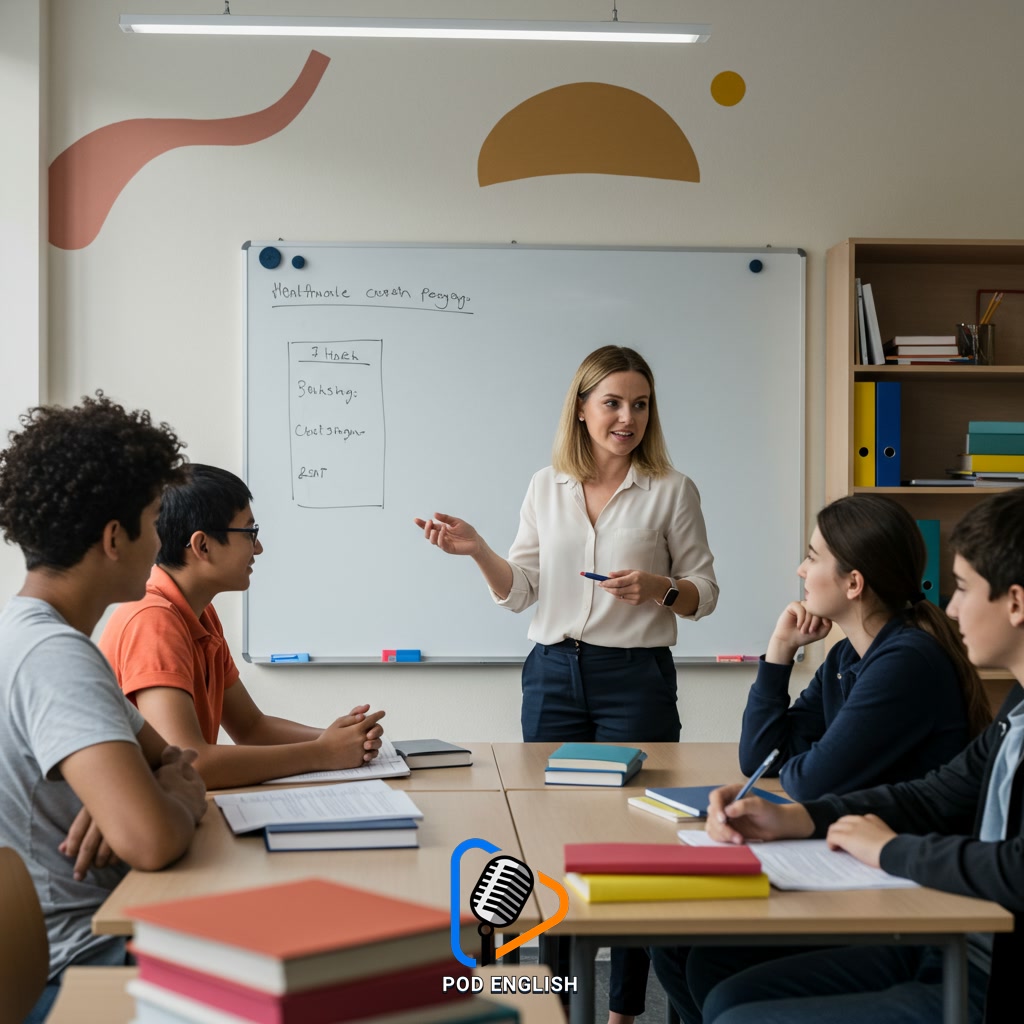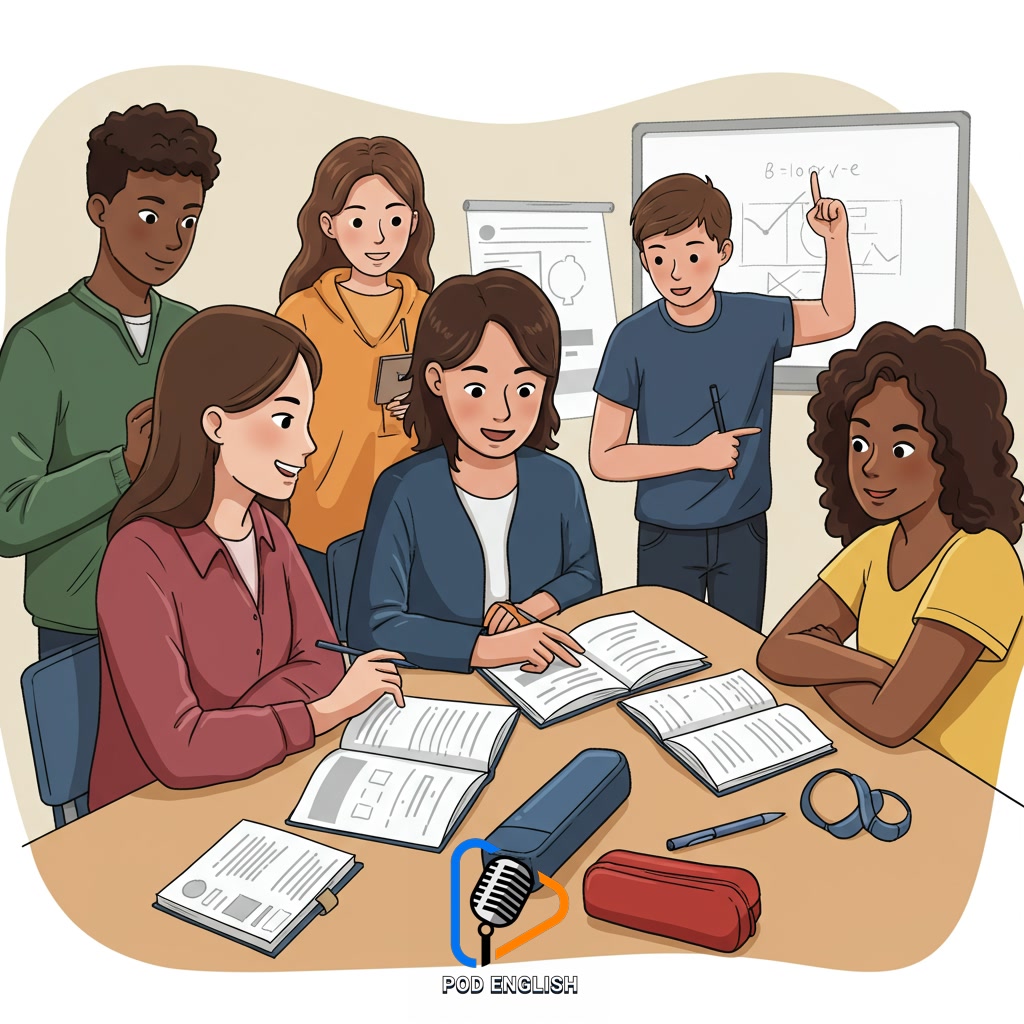Learn English
How Great Teachers Transform English Learning Experiences

Great teachers profoundly impact and improve the process of acquiring English language skills. They transform the learning experience, making it more engaging, effective, and personalized for each individual. By fostering a supportive environment and utilizing innovative techniques, these educators empower learners to build confidence and achieve fluency. Their influence is key to shaping a positive and successful journey in mastering English.
Table of Contents
- Section 1: Defining the Characteristics of a Great English Teacher
- Section 2: Igniting Student Motivation and Engagement in English Learning
- Section 3: Transforming Language Skills Through Effective Teaching Methods
- Section 4: Building Student Confidence and Reducing Anxiety in English
- Section 5: Creating a Positive and Supportive English Learning Environment
- Section 6: The Long-Term Impact of Great Teachers on English Proficiency and Appreciation
Section 1: Defining the Characteristics of a Great English Teacher
A great English teacher is defined by a combination of essential qualities that go beyond simply knowing the language. They possess a genuine passion for teaching and a deep understanding of English grammar, vocabulary, pronunciation, and cultural nuances. Crucially, they have the ability to explain complex concepts in clear, simple ways tailored to different learning styles. Patience is paramount, as learning a new language takes time and effort, and a supportive teacher creates a safe space for students to make mistakes and learn from them. Excellent communication skills, both in explaining and listening, are vital. Furthermore, a great teacher inspires confidence, encourages active participation, and adapts their methods to meet individual student needs, fostering a positive and effective learning environment where students feel empowered to improve their English skills.

Section 2: Igniting Student Motivation and Engagement in English Learning
Great teachers are masters at making English learning dynamic and relevant. They move beyond textbooks, incorporating interactive activities, real-world scenarios, and multimedia to capture students’ interest. By tailoring lessons to individual needs and celebrating small victories, they build confidence and a sense of progress. Their enthusiasm is often contagious, creating a positive and supportive classroom atmosphere where students feel comfortable taking risks, asking questions, and actively participating. This personalized and engaging approach is key to transforming passive learners into motivated, active participants eager to develop their English skills.

Section 3: Transforming Language Skills Through Effective Teaching Methods
Effective teaching methods go beyond traditional lectures, actively engaging students in the learning process. Teachers utilize communicative approaches, encouraging students to speak and interact frequently in authentic situations, which directly improves speaking and listening skills. They integrate task-based learning, where students complete projects using English, boosting reading and writing proficiency. Crucially, great educators provide timely, constructive feedback, helping learners identify areas for improvement and build accuracy. This focus on practical application and personalized guidance transforms passive knowledge into active, usable language skills, significantly enhancing students’ confidence and ability to communicate effectively.

Section 4: Building Student Confidence and Reducing Anxiety in English
Building confidence and reducing anxiety are paramount in English language acquisition, and great teachers excel in this area. They create a safe and supportive classroom environment where students feel comfortable taking risks and making mistakes, which are natural parts of the learning process. Instead of focusing solely on errors, effective educators provide constructive feedback and celebrate small victories, encouraging participation and effort. By fostering a sense of belonging and psychological safety, teachers empower learners to overcome their fear of speaking English, enabling them to practice more freely and build fluency step by step. This positive reinforcement significantly enhances the learning journey, making it less intimidating and more rewarding.

Section 5: Creating a Positive and Supportive English Learning Environment
Great teachers excel at cultivating a classroom atmosphere where students feel safe to take risks and make mistakes without fear of judgment. This involves actively listening to students, providing constructive and encouraging feedback, and celebrating small victories in language acquisition. By fostering a sense of community and mutual respect among learners, educators create a space where students are comfortable participating, asking questions, and practicing their English skills. This supportive foundation is crucial for reducing anxiety and building the confidence necessary for effective language learning.

Section 6: The Long-Term Impact of Great Teachers on English Proficiency and Appreciation
Building on the safe and encouraging environment cultivated in the classroom, great teachers instill a lasting passion for English. This goes beyond simply acquiring grammar rules and vocabulary; it fosters a deep-seated confidence and intrinsic motivation that drives continuous learning. Over time, students taught by exceptional educators develop not just higher proficiency in speaking, listening, reading, and writing, but also a genuine appreciation for the nuances, literature, and cultural richness of the English language. This long-term impact ensures that the skills and positive attitude towards learning persist well after formal education ends, empowering individuals to use English effectively and joyfully throughout their lives and careers.














